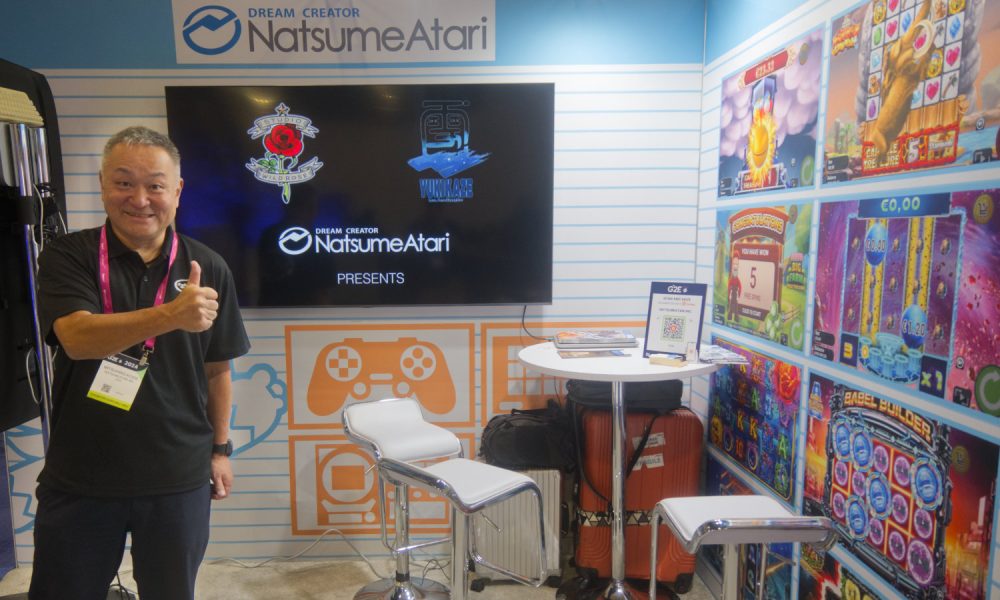
Japanese intellectual property (IP) is poised to become a force in North American igaming, says Hiro Koide, CEO and president of NatsumeAtari Inc.
“IP is going to become more of a selling point for games, and we’re looking into doing that, particularly bringing Japanese IP, well-known IP, to the market,” Koide said through interpreter Kevin Humphreys.
NatsumeAtari, based in Osaka, Japan, got its start making consumer video games in the late 1980s for the original Nintendo game system. The company’s Samurai Studio, which is making its its first Global Gaming Expo appearance in Booth 5526, has 150 employees, most of them veterans of the pachinko and video game industries. (The “Atari” portion of the parent company name is a Japanese pachinko developer, not the video game giant.)
“We started making land-game content five years ago and igaming content three years ago,” Koide said. “Regarding igaming, we thought we would like to show the world our content, and so we just jumped on G2E.”
Samurai has produced pachinko games for almost 30 years in Japan. “There is a particular animation style and game flow and gameplay in pachinko, and we are trying to use that for foreign markets,” Koide said. Pachinko games involve small silver balls that trickle down an arcade-style machine, with players trying to get the balls into winning holes.
“When pachinko started getting popular (in Japan), it was almost all original games that developers made themselves,” Koide said. “And then slowly but surely, IP started to be getting used more and more. That same sort of trend may happen in these markets as well.”
He said Samurai Studio brought a Japanese character “that’s basically the Barbie of Japan” and has a following outside that country as well. “That’s one of the things that we’re trying to use to appeal to the markets here,” he said. “We’d like to continue finding Japanese IP that resonates with consumers worldwide and use that in our development.”
Humphreys, who also is NatsumeAtari’s business development manager, said Samurai has a couple games live in the United States – Lightning Jungle and Capsule Treasure Mammoth Stampede – and also has games in Europe. The studio’s plans for North America revolve around igaming.
Humphreys said Lightning Jungle is a traditional 5×3 land-based casino slot, while Capsule Treasure is part of a series based on the popular Japanese “gacha gacha” vending machines, which dispense collectible toys. “It sounds very simple, but the Japanese have made the prizes very intricate and interesting,” Humphreys said.
Capsule Treasure’s feature game displays a capsule machine that awards bonuses and level-ups. “We went to our Japanese roots to make that game,” he said. “Besides that, it’s a tumbling theme game, which is less common in the U.S. as well.” He explained that a tumbling game is “Tetrisy,” in that players try to get rid of blocks as they accumulate.
The games are distributed by the slot aggregator Oddsworks.
Koide explained what his hopes are for Samurai’s first G2E appearance: “We still have a lot of content that’s in our back pocket that we’re looking to get out there. If we find suitable partners to take that content to market for us, that would be a successful G2E.”










